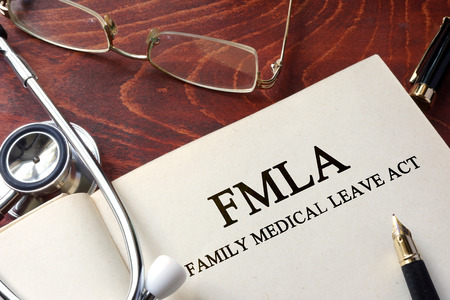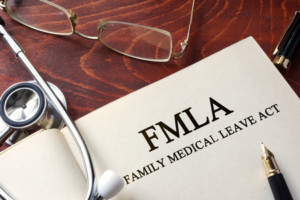

I’ve Come Back from FMLA Leave – But I Don’t Have a Job!

 The Family Medical Leave Act (FMLA) offers options when you face health challenges or those of an elderly parent or child. It recently arose as an issue with natural disasters, since employees may need time off to help a relative evacuate hurricanes or wildfires–or manage their health limitations during these disasters.
The Family Medical Leave Act (FMLA) offers options when you face health challenges or those of an elderly parent or child. It recently arose as an issue with natural disasters, since employees may need time off to help a relative evacuate hurricanes or wildfires–or manage their health limitations during these disasters.
When you are facing these challenges, you rely on FMLA to grant flexibility without risking your job security. Returning from leave only to find you are terminated is a stressful experience that could be illegal under federal and New York Law. Here is what you need to know about the FMLA and whether your termination during or after leave was improper.
General FMLA Requirements
The FMLA allows employees up to 12 unpaid weeks per year to attend to the birth or adoption of a child or the serious health condition of an immediate family member (spouse, child or parent) without risking their job or losing their employer-provided health insurance. An employee’s own health condition also receives this protection.
The law applies to all government agencies, private and public schools, and companies with 50 or more employees. To qualify, an employee must work 12 continuous months or at least 1,250 hours in the last 12 months.
In addition to the FMLA, New York law offers a paid family leave protection starting next year. Workers may receive up to eight weeks paid time off in 2018 with that increasing to 12 weeks in 2021. Like the federal law, it offers job protection and health insurance continuation.
Since the FMLA includes job protection, terminating an employee who requested or is on leave is a risky venture. There are few grounds where this is allowed and companies often faced legal action
Improper Termination
An employer must provide a nondiscriminatory reason for terminating an employee on FMLA leave. Two circumstances where this is allowed include:
- The employee was going to be terminated regardless of their FMLA leave because of poor performance; and
- The employee was on a performance improvement plan and failed to reach the goals.
If there were no plans to terminate the employee before they took leave, that is where employers get in trouble. For example, in Janczak v. Tulsa Winch, Inc., the employee was fired after his FMLA leave. His employer argued that they considered eliminating his position before he started leave. However, since no final decisions were made until after he started FMLA, the court determined that was an issue for trial.
Other reasons that may justify termination include poor performance that came to an employer’s attention while the employee was on leave and misconduct during an employee’s time off. This has to be well-documented and not a suddenly manufactured as a response to a complainant’s action.
Basically, even the appearance of impropriety is enough to establish liability. But this is a challenging endeavor that requires skilled legal representation.
Contact a New York FMLA Attorney
If you needed FMLA leave, you already faced less-than-ideal circumstances. Losing your job is the last thing you need and the reasons for your termination should at least be thoroughly investigated. If your employer acted improperly, you may be entitled to compensation.
If you face job loss after FMLA leave, contact the Working Solutions Law Firm and schedule a free case evaluation.


